Change your life, then change the world.
You’re on a mission to protect our planet and its resources through the study of natural sciences and conservation. Earn the degree or certificate you need to build a career with purpose, delivered online by a university with more than 150 years of success educating and developing future leaders in plant, animal and environmental sciences.
When you learn online with Oregon State University, you’ll gain real-world expertise through courses that have been finely tuned to help you master complex STEM subjects online. And as you level up your skill set, you'll study alongside faculty who are world-renowned leaders in the scientific community.
Join us as we go out there and make an impact, together.

As one of only three land, sea, space and sun grant institutions in the United States, Oregon State's expertise extends from the geologic layers of the Earth to the farthest reaches of the cosmos.
Browse conservation and natural sciences programs
Browse conservation and natural sciences programs
21 graduate programs in conservation and natural sciences available
Graduate degrees (5)

Environmental Sciences
M.S. or PSM
Choose between two master’s pathways in the environmental sciences. Gain rigorous training and focus on research areas like ecosystem function and health, water and natural resources management, environmental policy, and future climate scenario impacts.
Biogeochemistry Climate change Ecological policy Environmental analysis Social science GI Systems Statistical analysis Physical hydrology Experimental design Ecology Quantitative analysis Watershed management Environmental education Sustainability assessment
Environmental protection specialist Hydrologist Restoration specialist Land use planner Environmental scientist Geospatial scientist Climate scientist Sustainability analyst Environmental consultant Watershed specialist Wildlife biologist Conservation scientist Predoctoral student
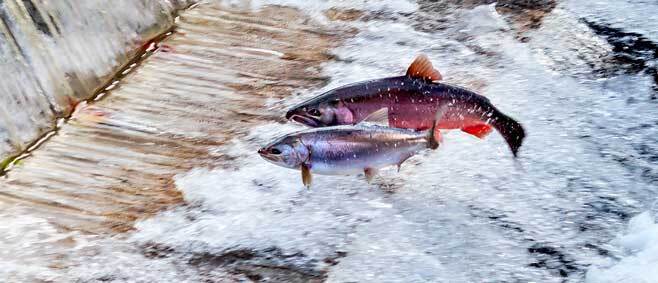
Fisheries and Wildlife Administration
PSM
Accelerate your career with advanced training in fish or wildlife biology, ecology, management and conservation. This program is ideal for professionals already working in fish and wildlife administration.
Wildlife behavior Ecological field methods Fishery biology Principles of wildlife diseases Habitat conservation Invasive species Aquaculture Wildlife population monitoring Managing wildlife in agricultural ecosystems
Wildlife biologist Conservationist Ecological planner Fisheries manager Biological technician Zoologist Wetland biologist Government agency ecologist Range manager Aquaculture farm manager Outreach coordinator
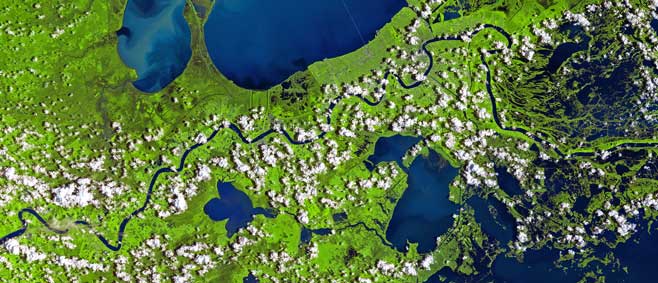
Geography and Geospatial Science
M.S.
Apply spatial data analysis to Earth systems and human-environment interactions to address issues ranging from climate resilience and environmental justice to transportation and public health.
Geographic data analysis Remote sensing principles and applications Advanced spatial statistics Web mapping Hydrology for water resources management Satellite image analysis Political ecology Conservation biology Planning for resilient communities Environmental assessment
Geographer Photogrammetrist Surveyor Spatial systems administrator Cartographer Remote sensing scientist GIS software developer Water resource specialist Wind energy development manager Geospatial intelligence analyst Urban planner Land use specialist GIS analyst
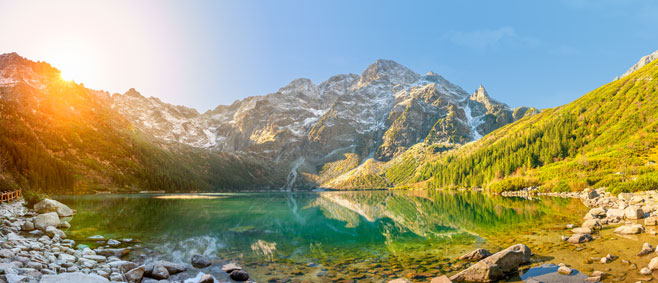
Natural Resources
MNR
Engage with customizable curriculum based on natural and social sciences as you learn to balance environmental, economic, health and cultural interests within the work of resource management.
Sustainable site planning Arboriculture Wildlife habitat management Remote sensing GIS Green infrastructure Social science research Science communication Water resources policy
Environmental policy analyst Forester Land use planner Recreation resource manager Natural resources educator Park naturalist Water conflict manager Natural resources manager Wildlife habitat specialist Extension educator

Wood Innovation for Sustainability
PSM
Gain expertise in wood science and technology as you study sustainable manufacturing, product design and material recovery in a non-thesis program that opens pathways to leadership roles.
Forest certification programs Environmental impact assessment Manufacturing and quality control Life cycle analysis Sustainable manufacturing practices Policy development for sustainability
Sustainability Manager Supply Chain Manager Policy Analyst/Advisor Quality Assurance Manager Product Development Manager Environmental and sustainability consultant
Graduate certificates (15)

Energy Policy
Graduate Certificate
Broaden your knowledge of U.S. energy policy, how it impacts the development of energy markets, and the technologies and resources currently in use and under development.
Renewable energy policy Energy economics Stakeholder engagement Policy implementation Energy policy evaluation Climate policy
Energy policy analyst Renewable energy project manager Legislative policy director Urban or regional planner Sustainability manager Business operations specialist
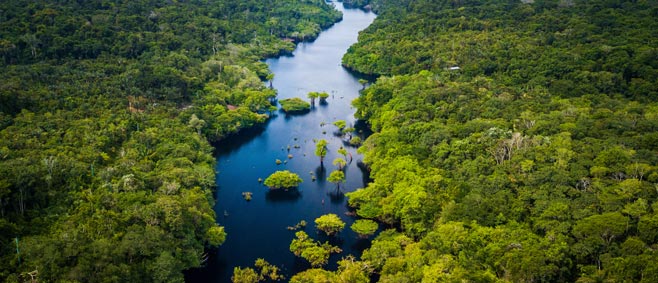
Environmental Management
Graduate Certificate
Help organizations build more sustainable practices with skills in environmental management systems, ESG reporting and investing, humanitarian engineering, green infrastructure and more.
Environmental analysis Sustainability assessment Project management Remote sensing ESG reporting Risk analysis ESG investing Green infrastructure Humanitarian engineering Environmental site assessment Project design
Environmental consultant Sustainability manager Environmental planner Environmental resource manager Land use specialist Business operations specialist Environmental compliance inspector Environmental economist

Fisheries Management
Graduate Certificate
Gain the practical skills in biology, assessment science and social science that you need to manage sustainable recreational and commercial fisheries in collaboration with scientists and policymakers.
Aquaculture Ocean law Freshwater ecology Coastal ecology Marine conservation biology Fisheries law and policy Ecological restoration Wetlands and riparian ecology Fish physiology Fisheries assessment Aquatic biological invasions
Fish ecology technician Conservation agent Policy planning staff Environmental affairs advisor Harvest management biologist Fisheries biologist Fish hatchery manager NGO outreach coordinator Land use planning assistant Parks manager

Forests and Climate Change
Graduate Certificate
Learn how climate change impacts forest ecosystems and approaches to improve forest management for climate change mitigation and adaptation.
Forest ecosystem management Forest genetics Managing greenhouse gas emissions Adapting forests to climate change Forest carbon analysis Carbon sequestration Market solutions to climate change
Climate change analyst Educator or consultant Conservation ecologist Carbon accounting specialist Adaptation planner Climate change impacts assessor Forester Research associate Conservationist
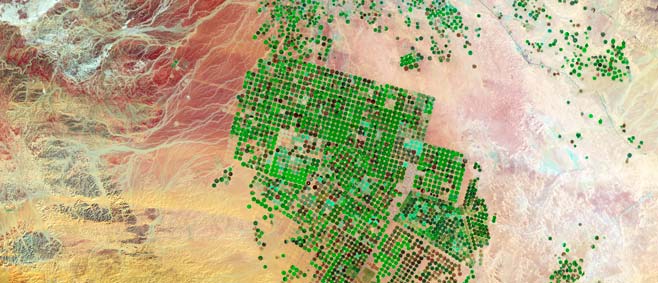
Geographic Information Science
GIScience Graduate Certificate
Develop skills in remote sensing, geospatial data collection and analysis, geovisualization and the use of machine learning to measure and model systems of human and environmental interaction.
Remote sensing Spatial statistics Photogrammetry Cartography 3D laser scanning Scientific visualization Digital terrain modeling Programming for GIScience Soil landscape analysis Spatial epidemiology
Cartographer Geographic data operations analyst AutoCAD/ArcGIS software developer Geographer Remote sensing specialist Research associate GIS technician or analyst City planner Photogrammetry technician Map specialist

Leading and Creating Change
Graduate Certificate
Using practical methods, develop professional leadership skills that are valued by organizations that prioritize social, organizational and environmental health and justice.
Interdisciplinary management Organizational performance Dialogue facilitation Change management Performance evaluation Conflict resolution
Human resources managers Training and development managers Education administrators Community health workers Marketing directors Fundraising directors

Mass Timber
Graduate Certificate
Develop expertise in sustainable construction, and gain skills related to mass timber products and the methods driving innovation in their production, design, fabrication and construction.
Wood product applications Digital design and prefabrication Manufacturing and quality control Sustainable material sourcing Supply chain management Integrated project delivery
Quality assurance managers Supply chain specialists Sustainability consultants Building code analysts Product development managers Market development specialists
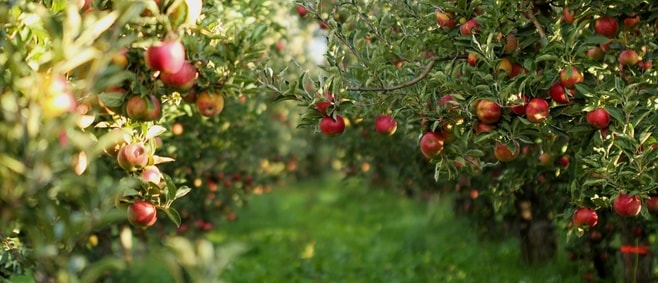
Organic Agriculture
Graduate Certificate
Grow your understanding of the science behind organic agroecosystems as well as your ability to manage them as you equip yourself for work in organic food production, policymaking or education.
Organic food production Organic soil management Local food systems Integrated pest management Organic animal production systems Plant breeding and seed production Organic beekeeping and honey production
Farm manager Nursery or greenhouse manager Organic grower Agricultural technician Crop consultant Extension agent Biointensive farmer Organic farming consultant Research associate Organic certification officer

Sustainable Natural Resources
Graduate Certificate
Gain a holistic view of sustainability as you tackle environmental, economic and social challenges that call for multidisciplinary problem-solving skills and a global perspective of resource management.
Environmental sociology Natural resources ethics Natural resources economics Ecological restoration Agroforestry Forest wildlife habitat management Integrated food, energy, water and climate policy Public lands policy and management
Forest resource administrator Rangeland specialist Land rehabilitation specialist Conservation biologist Environmental protection specialist Silviculturist Habitat conservation specialist Land use planner Biometrician Insect and disease management

Timber Circular Economy
Graduate Certificate
Study sustainable forest management, life cycle analysis and resource optimization, and learn via real-world applications that aim to reduce waste and enhance the competitive advantage of renewable resources.
Sustainable forest certifications Environmental impact assessment Material recovery strategies Life cycle analysis Service life planning Supply chain optimization
Sustainability manager Supply chain manager Environmental Compliance Manager Policy analyst Quality assurance manager Corporate social responsibility (CSR) manager
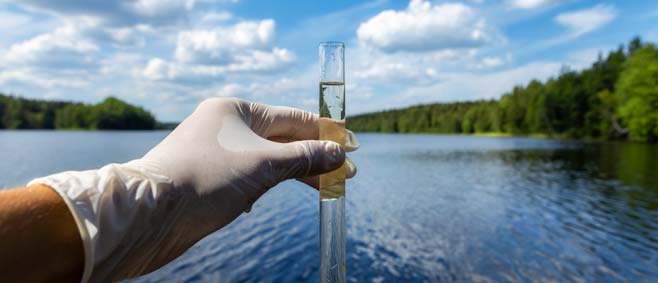
Toxicology
Graduate Certificate
Explore how toxins impact our environment, human health and food safety and learn how to determine and limit toxicity risks.
Fundamentals of toxicology Human health risk assessment Computational toxicology Public health Biological science Social science Science communications Biostatistics Environmental toxicology Molecular toxicology
Environmental toxicologist Food safety compliance officer Regulatory toxicologist Operations research analyst Biomedical technician Environmental analyst Product safety evaluator Environmental consultant

Urban Forestry
Graduate Certificate
Apply principles of forestry, green infrastructure, horticulture, urban planning and landscape architecture to the stewardship of planted landscapes and native forest remnants in and around cities.
Urban forest planning Green infrastructure Ecological restoration Urban forestry leadership Planning for resilient communities Arboriculture Wildland-urban interface management GIScience Environmental interpretation Ecosystem services
Urban forestry supervisor Tree planting coordinator City arborist Urban natural resource planner Community assistance forester Nonprofit director Urban and community forestry program manager

Water Conflict Management and Transformation
Graduate Certificate
Help communities manage a crucial natural resource as you facilitate water governance and conflict resolution, drawing on multidisciplinary expertise to balance ecological, social and economic interests.
Hydro-diplomacy Water governance Hydrology Pollution assessment Water resources economics Groundwater remediation Environmental law Bargaining and negotiation Finance administration Aquatic chemistry Watershed processes
Water resources director Water hygiene consultant Water treatment consultant Deputy water manager Resource analyst Wastewater network modeler Sales engineer Water resource specialist

Water Resources Engineering
Graduate Certificate
Study the hydrologic cycle and learn modeling and analysis skills, so you can help develop more sustainable solutions for water resources management.
Hydrologic processes Surface modeling Water resources system design River engineering Water quality management Watershed analysis Groundwater dynamics Numerical modeling Aquifer assessment Stormwater management
Hydrologist Water resources engineer Civil engineer Environmental engineer Hydraulics engineer Natural resources manager
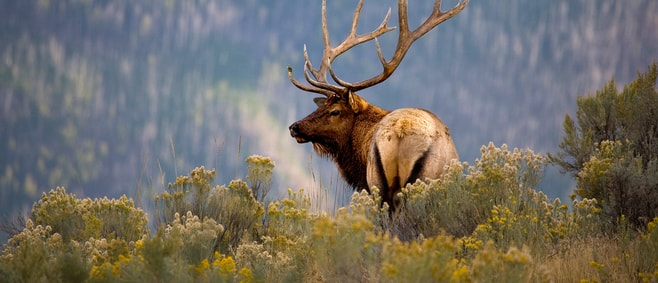
Wildlife Management
Graduate Certificate
Apply a range of applied sciences to manage wildlife populations, with a focus on practical skills that will help you balance habitat conservation and wildlife population dynamics with human dimensions.
Wildlife population monitoring Biological invasions Wildlife law and policy Ecological restoration Species recovery Wildlife behavior Urban ecology Natural resource ethics Riparian ecology Wildlife diseases Wildlife in agriculture
Conservation agent Harvest management biologist Wildlife technician Wildlife law enforcement officer Environmental affairs advisor Wildlife biologist Wildlife inspector and forensics specialist NGO outreach coordinator Wildlife reserve manager
Graduate microcredentials (1)

DEI in Natural Resources
Graduate microcredential (advanced)
Learn important DEI, social sustainability and collaborative problem-solving skills that support a more inclusive and effective governance of natural resources.
DEI awareness DEI application in natural resources DEI leadership Culture and local knowledge Environmental justice Human and community well-being Stakeholder and public engagement
Learn more about Oregon State’s online bachelor’s degrees, master’s programs and graduate certificates focused on conservation and natural sciences.

Master of Natural Resources

Contact us directly
Our knowledgeable staff of enrollment services specialists will answer your specific questions about Oregon State online degree programs, courses, the application process and how to get started.
8 a.m.–4 p.m. PT, Monday–Friday
Request
information
To ensure that you receive emails from us, please add "ecampus@oregonstate.edu" and these domains to your safe senders list: “@oregonstate.edu,” “@discover.oregonstate.edu” and “@email.oregonstate.edu.”
† All mobile information you share will remain confidential and will never be given to external sources. Any costs associated with receiving a text message are the responsibility of the individual receiving the message. Opting in to this mobile text messaging service from Ecampus is free of charge, however, message and data rates may apply from your wireless carrier.

